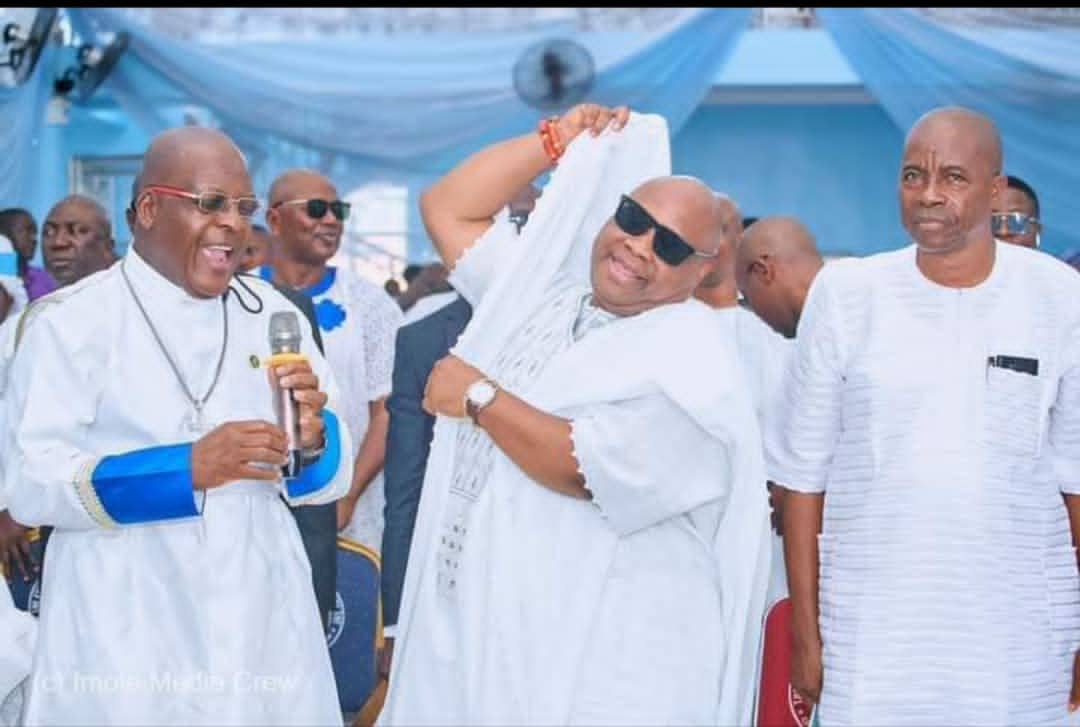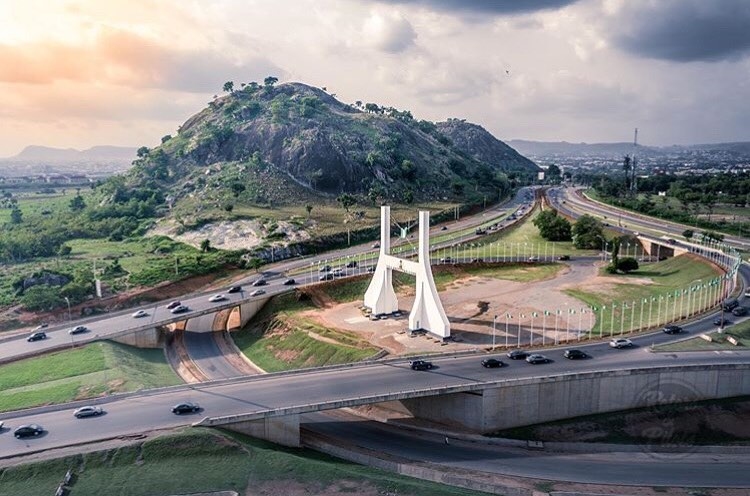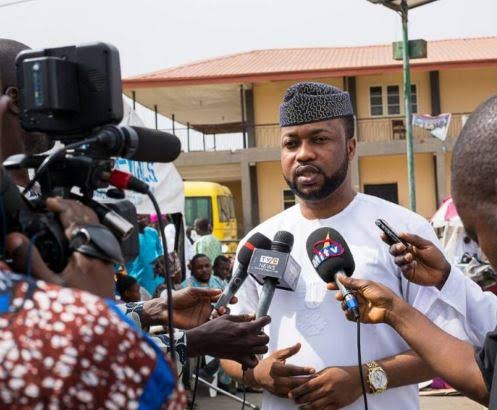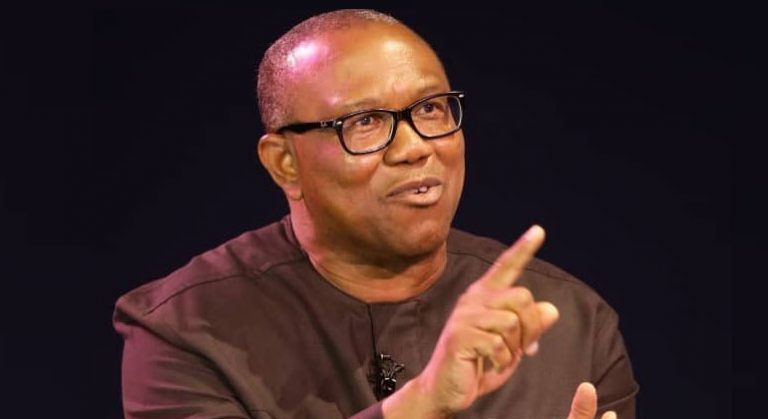VOICE AIR MEDIA
I finished secondary in 1998 at Imesi-Ile Commercial Grammar School. In 1999, Chief Bisi Akande emerged as Osun State Governor. During this period, there was nothing like NECO, once your WAEC result is not good, you will wait till another year, for those who couldn’t afford to pay for GCE.
I was still very much at Imesi-Ile when Chief Bisi Akande started massive construction/rehabilitation of roads. Among those i personally monitored then were Imesi-Ile to Igbajo, Imesi-Ile to Edemosi to Ajaba to Ila, Ikirun to Ila, etc. Virtually every nook and cranny of the State received the attention of Akande’s road construction and rehabilitation.
It was his administration who built the State Secretariat, though i’m aware the money used in the construction was deducted from worker’s salaries, they were not happy with the arrangement. Head or tail, Baba gave Osun a befitting State secretariat.
Akande’s wasn’t in the good book of Osun work force because Baba wanted to reduce the burden the number of civil servants inflicted on the state economy through the payment of salaries and other entitlements, hence many were sacked over certificate forgery, while many were unjustly or erroneously sacked. As a result of this, Baba was compensated by voting him out in 2003. People revolted against his government through votes.
Prince Olagunsoye Oyinlola was the new bride in 2003. Shortly after he took over, all those who were sacked by Chief Akande were reinstated. Oyinlola was hailed because his government was worker’s friendly.
Though, his administration embarked on many capital projects across the State. He dualised Old Garage to Akoda without borrowing a dime. He did lot of local government road, built over 7,000 classrooms through Constituency Projects in public primary and secondary schools.
Many wars he fought, eventually, he was sacked by Justice Clara Ogunbiyi-led Appeal Panel on November 26, 2010. The rest is history.
Governor Aregbesola took over through court, and he was hailed in his first term in office because he was paying salaries regularly including 13th month salary. No issues, everything was going on smoothly.
But before he was re-elected, Aregbesola’s trouble started, as some months salaries were left unpaid. He eventually paid workers, before his election of August 8, 2014.
Workers began to hate him because he was not paying full salaries when his second term in office took off. No promotion, no conversion, no increment. Meanwhile, economy in the State felt the heat, because the major channel through which money flows into the economy are these unpaid civil servants.
Governor Oyetola, Aregbesola’s successor did his best paying workers salaries, but what of the 30 months modulated salaries owed workers by a government Oyetola was part of?
Oyetola refused to commit to paying the arrears. Contributory pensioners also groaned in pains of piling unpaid entitlements. However, Oyetola administration trudged on, defraying backlog of contributions owed the retirees.
Oyetola was sacked by the people of Osun because his party, APC has been deemed a failure in terms of fulfilling promises made in 2015 and 2019 respectively. Also, his inability to manage his party very well. That some members could be so aggrieved and factionalised the party signaled a bad leadership, which later spelt doom for him.
Going by the realities on ground, was Osun State not just created to pay salaries?
Can we grow the economy so that lion share of funds are not dedicated to salaries with nothing left for capital projects? No economy can grow without an active promotion and contribution of SMEs.
Osun cannot continue to be Civil Service State. Industrialisation and commercialisation of the State after over thirty years of her creation is long overdue. Osun workforce is approximately 36,000, both State and Local Government.
To diversify Osun economy, the incoming government should be thinking and looking the area of agriculture.
Agriculture was the mainstay of Nigeria’s economy before the discovery of crude oil. From 1960 to 1969, the sector accounted for an average of 57.0% of GDP and generated 64.5% of export earnings. From 1970 to late 2000s, the sector’s contribution to GDP and export earnings steadily declined, because Nigeria focus shifted to petroleum exploration.
Agriculture plays a critical role in transforming economies to reach the goal, along with achieving other essential development goals like ensuring food security and improving nutrition. Therefore, in order to end hunger and undernutrition while accelerating economic growth, agricultural transformation must become a reality.
There are two key areas to make agricultural transformation a reality. First, it is critical to make modern technologies available. While modern agricultural technologies can come from private and public sectors, the incoming government needs to play a big role in investing in agricultural research and development (R&D).
The next key area for agricultural transformation is adoption of modern technologies, as farmers may not use such technologies even if they are available. Many technologies such as high-yielding seeds require stringent conditions for water, inputs, and knowhow. Therefore, governments must prepare conditions including irrigation and improved market infrastructure for farmers to access these inputs and sell their agricultural produce. The incoming government will also need to build human capital to ensure a skilled labor force to master new technology, handle logistics and boost each node of the value chain.
Above all, the incoming government must be ready to create an enabling environment for the real farmers in the State. Government should as a matter of duty, identify the real farmers and those willing to go into farming, create an enabling environment for them, form them into clusters, let them have access to facilities.
Before we know it, Osun will become a commercial hub to other neighbouring States. It is doable. As ‘dende ijo’ begins, I wish Adeleke a safe landing.
©Seyi Adeniyi, is a journalist and publisher.
seyidotpeter999@gmail.com
•Views expressed by contributors are strictly personal and not of VOICE AIR MEDIA.




